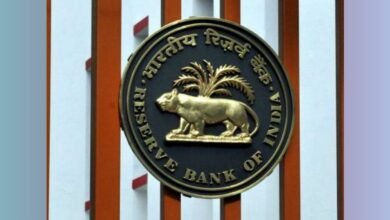Regulatory Hurdles Pose Challenges for Paytm as RBI Orders Deposit Halt
Paytm Faces Regulatory Headwinds as RBI Directs Deposit Halt, Prompting Investor Concerns.

Bangalore: The Reserve Bank of India (RBI) has directed Paytm Payments Bank to halt the acceptance of fresh deposits in its accounts and popular digital wallets from March. This move has raised concerns about the impact on Paytm’s revenue, potentially leading to the cancellation of the bank’s license, according to an insider cited by Reuters. Paytm and the RBI have not yet provided comments on the matter.
The RBI’s directive is anticipated to have repercussions on Paytm’s lending partnerships, as the central bank’s action could prompt reevaluation of relationships with the company. Paytm, which owns a 49% stake in the payments bank, faces the risk of disruptions in its journey toward profitability, despite having witnessed a 20% increase in its stock last year and an additional 20% surge this month before the regulatory intervention.
In response to the RBI’s instructions, Paytm has pledged to take immediate steps to comply, acknowledging a potential worst-case impact of 3 billion to 5 billion rupees ($36 million-$60 million) on its annual earnings before interest, tax, depreciation, and amortization (EBITDA).
The regulatory scrutiny is not new for Paytm Payments Bank. In 2022, the RBI had previously ordered the bank to stop acquiring new customers, citing concerns over non-compliance and supervisory issues. The recent move comes after a subsequent audit revealed persistent non-compliance, further escalating the situation.
Jefferies downgraded Paytm’s stock to “underperform” from “buy”
Jefferies, an American multinational independent investment bank and financial services company based in New York City, downgraded Paytm’s stock to “underperform” from “buy” following the RBI’s action. Jefferies has also revised its target price for Paytm’s stock to 500 rupees from 1,050 rupees, expressing concerns about potential regulatory and reputational challenges affecting the company’s profitability.
The downgrade by Jefferies includes a substantial cut in EBITDA estimates for Paytm, predicting a 46% reduction in the 2025 financial year and a 44% decrease in the 2026 fiscal year. This revision is accompanied by forecasts of a 7% to 10% decline in payments revenues, a 17% to 24% drop in lending revenues, and compression in payments margins.
Analysts at JPMorgan echoed similar sentiments, cutting Paytm’s rating to “underweight” from “neutral” and reducing the target price to 600 rupees from 900 rupees. JPMorgan highlighted the material impact on near-term growth and profitability, emphasizing the need for Paytm to address governance and compliance concerns to restore credibility in the business.
While industry observers don’t view the RBI’s order as the end of the road for Paytm, the company now faces a challenging period marked by regulatory scrutiny, reputational concerns, and the imperative to strengthen compliance with regulations.
The RBI has also announced the termination of nodal accounts, used for facilitating transactions, for both Paytm and its subsidiary, Paytm Payments Services, by February 29. This move further complicates the landscape for Paytm as it navigates through the regulatory hurdles and works towards restoring confidence in its business durability.







